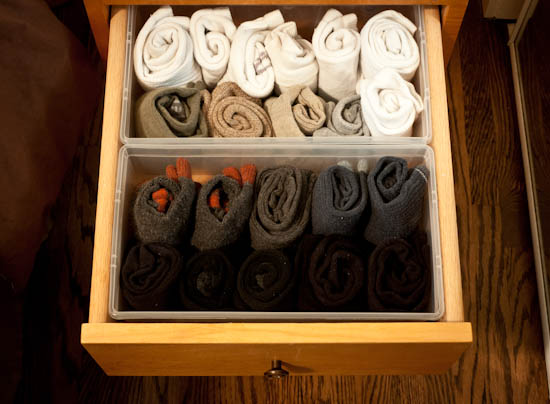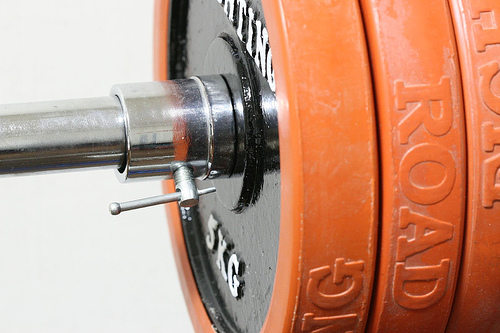
I spent six weeks getting rid of several carloads of possessions, and three days arranging what was left. Now my socks are arranged by color, my apartment is way bigger, and being home feels like a vacation.
Some of you have been following my experiment with Marie Kondo’s The Life-Changing Magic of Tidying Up. For those who haven’t, it works like this: you go through every possession you own, hold it in your hands, and keep it only if it evokes some kind of “joy”.
That criterion sounds kind of flaky, but it works surprisingly well. When you hold an item in your hands, its psychological effect on you becomes clear in a second or two. The theory is that any possession that gives you bad or mixed feelings is too costly to have in your life, if it’s possible to get rid of it.
I ended up getting rid of hundreds of things. Now cleaning up takes five minutes, and everything I do in my home—cooking, recreating, cleaning even—has a fun, effortless quality to it. It feels like everything I own is on the same team.
I had achieved an “everything in its place” household before, so I’m familiar with the euphoria of having extra space and no homeless possessions. Tidiness simply feels great, on top of the practical benefit having more space and less clutter. But this time there’s a different kind of euphoria, because for the first time nothing in my house gives me mixed feelings.
Every possession is a relationship
Most of us own lots of things that make us feel bad. Unused gifts. Clothes that don’t fit. Supplies for hobbies you never really got into. Books you’ll never read. Plastic crap from the dollar store. When you hold a possession in your hands it becomes clear that it makes you feel something—joy, guilt, weariness, fear, very often mixed feelings—sometimes very strongly. If it’s normal to have hundreds or thousands of possessions, then we are each, at all times, bearing the weight of hundreds or thousands of these relationships. So it makes sense to very carefully consider what we keep in our homes. Read More



 I'm David, and Raptitude is a blog about getting better at being human -- things we can do to improve our lives today.
I'm David, and Raptitude is a blog about getting better at being human -- things we can do to improve our lives today.
It all pretty the opposite if you're not in the US :) Since 2022 I've changed 3 countries and I'm planning to emigrate to the fourth one. I've had so much novelty and so many things to adapt to. However, time had never run so fast for me as in 2022...